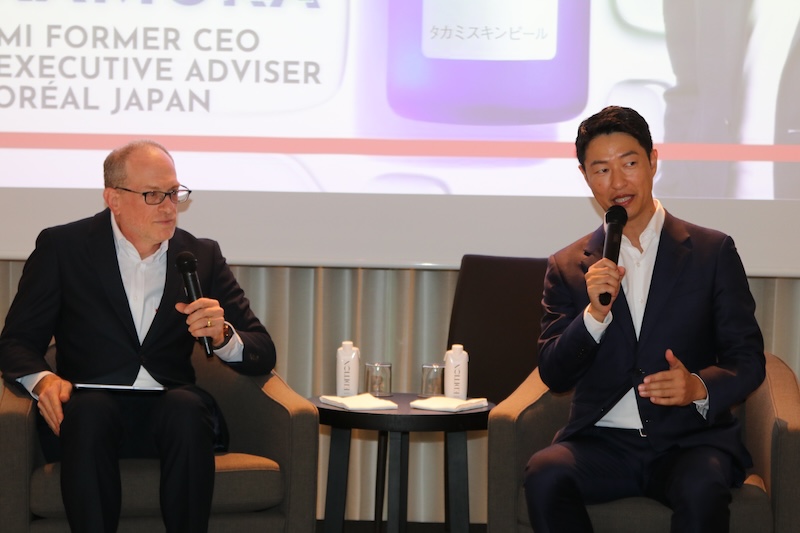On November 6th, 2023, I was privileged to conduct an onstage conversation the America and French chambers of commerce in Japan with Yuji Okamura, Takami Former CEO and executive adviser to L’Oréal Japan CEO, Jean-Pierre Charriton, who was also on hand to introduce Okamura-san and take questions.
Takami is a Japanese skincare product company founded in 1999, innovating an omnichannel approach, selling directly to consumers online using a subscription model, and disrupted the prestigious skincare market and industry in Japan. He defied conventional wisdom that retail success relies on department stores and wholesalers in distribution, growing revenue to more than $60 million by 2019. The company continued to grow even during the Covid-19 pandemic that began in 2020 while incumbent competitors experienced negative growth or, worse, losses.
In 2021, French cosmetics and skincare giant L’Oréal acquired Takami, whose brand is now globally situated within L’Oréal Luxe. In Japan, Takami’s business continues to grow while remaining faithful to its direct-to-consumer roots and eschewing department-store distribution, even today.
I discuss Takami and Yuji Okamura in my book, Charismatic Disruption. My eight takeaways from the conversation and Okamura-san’s responses to questions from the audience are below.
- Disruption is about doing the right thing by your customers and creating value. Alway keep these two things in the front of your mind.
- When pursuing a disruptive strategy, never worry about pissing people off. It is a natural result of disrupting the market. While you might not like it, don’t let it bother you or stop you. If you believe you to doing the right thing by your customers, what others think does not matter.
- Never worry about competitors imitating your disruptive strategy. They never succeed. It’s the “why” of you business that is the most important, not the “what.” Competitors might try to copy your “what,” but it is the “why” that counts.
- As an entrepreneur, one of the biggest challenges in integrating into a large corporate entity is established rules and bureaucrat processes that at times seem arbitrary. Entrepreneurs can change processes on the fly based on practical needs in the moment in ways that large companies cannot. This behavior is part of what makes entrepreneurial businesses successful. Larger organizations might not have that flexibility. However, their standardized processes enable them to grow to a large scale.
- Think of your business growing in terms of life-time relationships with customers is highly disruptive in any market or industry, as long as your business model instantiates your thinking. Many companies have marketing and PR departments that create massages and pay lip service to such ideas. Yet it is the brands that truly creat lifelong, trusting partnerships with customers that succeed.
- A business strategy that integrates industry models who actors that are typically at odds with each other is inherently disruptive. In the case of Takami, these models were dermatology clinics and cosmetics.
- Never allow others to define your business for you. Define your business for others. While most Japanese companies viewed Takami as a “direct-to-consumer” company, only L’Oréal right viewed Takami as a luxury brand, which is why the acquisition made sense to all parties, and succeeded.
- In an organization, disruption is a team sport.


